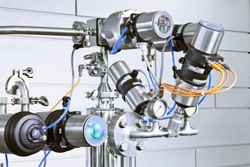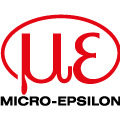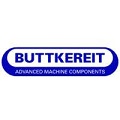
Posted to News on 15th Sep 2014, 19:11
Making the grade - achieving compliance with food standards
The International Featured Standard (IFS) Food is an internationally recognised certification which is intended to encourage consumer confidence and enhance the brand perception of companies involved in food production. It is argued that achieving the required standard can improve food safety and quality while also streamlining processes and improving efficiency. Marc Klingler, Segment Manager for Brkert Fluid Control Systems, looks at the areas which may require specialist attention.

IFS Food's fundamental objectives are to establish common standards which are evaluated by a uniform system, which will ensure transparency throughout the supply chain. This will enable consumers and retailers to have high levels of confidence in the goods produced as well as reducing costs and improving efficiency for suppliers.
The current version of IFS Food came into force in July 2012 and is used for auditing those companies involved in food processing or packaging of loose food products. The audit itself is carried out by an independent, certified body and comprises an in-depth analysis of both the processes themselves and the documentation relating to the manufacturing processes that is held by the company.
This audit uses a scoring system to award and subtract points according to the level of compliance with each requirement. In addition, the auditor can impose a "KO' (Knock-out) or a "Major' non-conformity which can subtract a percentage of the overall score. In IFS Food there are 10 "KO' requirements and if the auditor establishes that these requirements are not fulfilled by the company, this results in non-certification.
One such "KO' requirement is the expectation to operate a robust Hazard Analysis and Critical Control Point (HACCP) system which should focus on the food handling procedures and ensure that all of the final products are safe to eat. In order to determine the critical control points, specific monitoring processes are required which will indicate any loss of control within a process. In addition, records of the monitoring must be maintained for a suitable period to ensure compliance.
In essence, this requires the use of temperature, pressure, conductivity, flow and other sensors to measure the process parameters and record them for future analysis. In many cases these sensors will form part of the control loop for the manufacturing process and therefore retaining this data should be a relatively simple task.
Evidence of compliance
The food manufacturing company also has a responsibility to ensure that all externally sourced materials and services, which have an impact on food safety or quality, conform to the required standards. This requires the food manufacturer to retain all the supporting documentation relating to the materials as evidence of compliance. All reputable manufacturers of equipment used in the food industry will provide this as a matter of course.
Clearly hygiene is of the utmost importance within the food industry, and so the audit also scrutinises the cleaning and disinfection processes to ensure that they provide effective coverage. For many manufacturers this will involve Clean-In-Place (CIP) methods to ensure that the manufacturing facility is safe. In order to provide evidence of the effectiveness of these processes, it may be necessary to have additional conductivity and flow sensors in place to monitor and record each procedure.
Brkert is able to test cleaning cycles and provide 100 per cent reliability on the flow properties and cleanability of a complete valve assembly by using a riboflavin test rig; something few manufacturers can offer. In hygienic applications where CIP is operated, it is essential to be able to ensure the cleaning cycle is both effective and efficient, a criterion which can be completely fulfilled and demonstrated by Brkert.
The ever-increasing demands of consumers and the rising liabilities of food retailers have led to the increased requirement for a uniform quality assurance scheme which will satisfy all stakeholders. The IFS Food Standard details the exact requirements of those wishing to be certified under its audit process, which at first glance can appear to be daunting. However, by maintaining existing systems and seeking expert advice, it is possible to attain the required standards.
Brkert has considerable experience in designing components and complete process lines that are optimised for hygienic conditions, using premium materials and the latest design techniques to deliver highly efficient processes while exceeding current hygiene legislation. Brkert has developed a wide range of control valves, pressure, conductivity and flow sensors which can all be used to develop an efficient and accurate process control system, while still complying with the monitoring and data recording requirements of the latest IFS Food standard. To learn more please go to www.burkert.co.uk.
Fluid Control Centre
1 Bridge End
GL7 1QY
UNITED KINGDOM
+44 (0)1285 648720






























